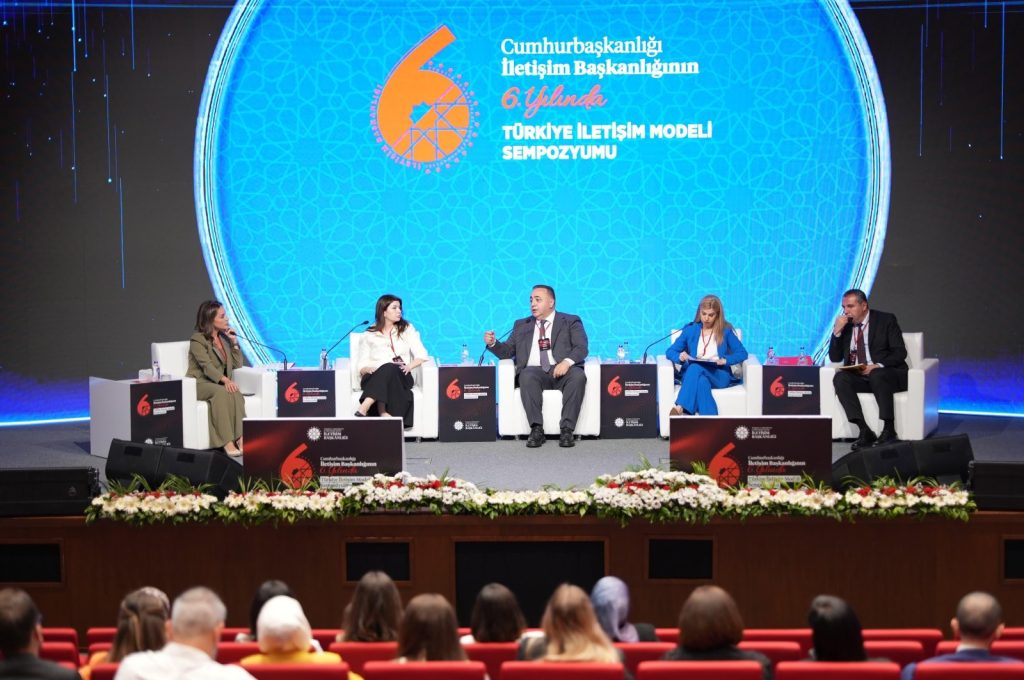The Presidency’s Directorate of Communications yesterday celebrated its sixth anniversary through a range of events and panels, reminding us of the crucial role of a national communications strategy and the challenges faced by journalists today.
Established in 2018, the directorate has gradually tackled several issues and widened its departments to include public diplomacy and disinformation.
In the past few decades, strategic communication for nations has become a field for geopolitical competition and a race for handling perceptions. Supremacy in discourse proves vital in championing narratives as well as the truth. The conflicts between Ukraine and Russia or that between Israel and Hamas right now have laid bare how the party that is stronger in its strategic communication is viewed as right.
Even non-state actors and terrorist organizations have become aware of the importance of this field. To give an example concerning Türkiye, Ankara has for years dealt with the PKK terrorist organization not only on the field but also in the digital space. The terrorist organization has, over time, expanded its propaganda tools and relations with the Western media, hacker groups or fake accounts. Nowadays, terrorist organizations even have websites and social media accounts.
In this context, a decent and comprehensive strategic communication policy is directly linked to the national interest of states. A state’s perception can range from shaping people’s choice of tourism destinations to countries’ partners or collaborators on international platforms.
Thus, the Türkiye Communication Model aims primarily to bridge the Turkish people and state, enhance the country’s standing globally, change and lead perceptions, provide coordination between state institutions and speak with a single voice.
International brand evaluation organization Brand Finance’s “Global Soft Power Index 2024” indicates the outcomes of Türkiye’s strategy. According to this data, Türkiye rose by 10 places in the field of media and communication compared to the previous year, ranking 18th among 193 countries. Again, it became the second country with the most progress in the last four years in important areas that define soft power, including the categories of “recognition” and “reputation.”
“The Türkiye Communication Model is not only a communication strategy but also a reflection of New Türkiye’s vision, dynamism and global leadership claim. This model will reinforce Türkiye’s rise in the field of communication and will carry our country to its deserved place among the leading countries in the century of communication,” head of the directorate Fahrettin Altun said during his speech.
Another vital duty of the directorate is to tackle disinformation. Thus, it established a center to counter disinformation, which regularly publishes fake news bulletins and explains the truth through evidence. Türkiye is one of the countries most exposed to disinformation. This may be rooted in prejudices but also in the changing nature of the digital space, where fake news travels and amplifies way faster than the truth. Disinformation is known to be used as a weapon by states and groups. Especially the country’s counterterrorism operations in northern Syria and Iraq, and its dealings with migrants or internal policies are frequently used for propagating disinformation and creating a false image.
Yet, the directorate or departments dealing with strategic communication are insufficient. A hand-in-hand approach with journalists is necessary. Moreover, the strategy needs to incorporate even businesspeople, influencers, celebrities, community leaders, academics and more. In a changing media landscape, with digitalization and new challenges arising, the role of professional journalists is to verify information and do their thorough fact-checking, prove disinformation wrong, follow news on the field and maintain a trustworthy networking circle while sticking to the profession’s ethics will be more important than ever.


